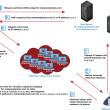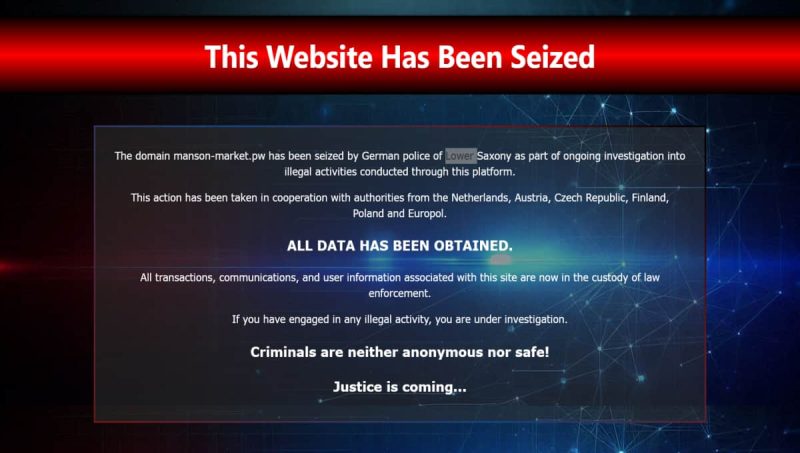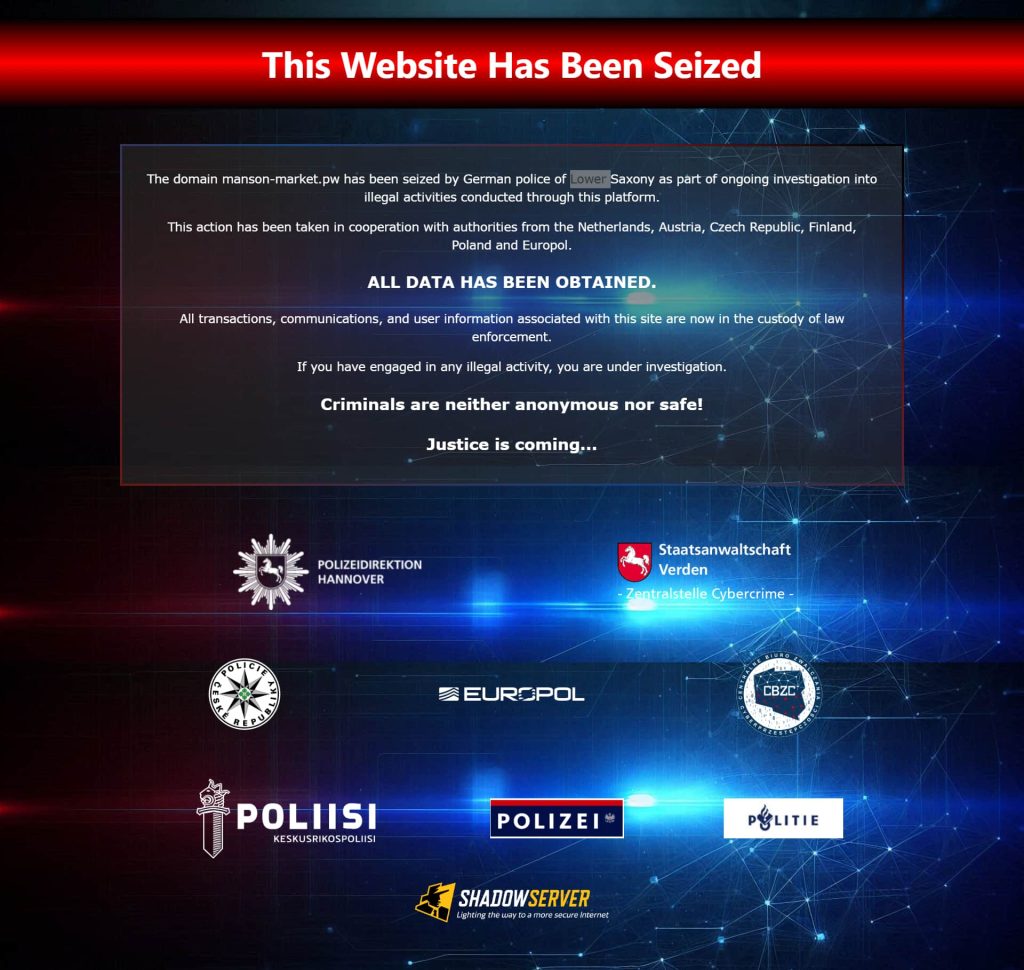SUMMARY
- Manson Market Takedown: Europol and international law enforcement dismantled the notorious Manson Market cybercrime platform, disrupting phishing networks and seizing stolen data.
- Sophisticated Marketplace: Manson Market allowed cybercriminals to buy and sell stolen data with advanced filtering options, facilitating targeted fraud and financial crimes.
- Phishing Scams Uncovered: Investigators linked the marketplace to fake online shops designed to steal payment information, fueling a steady flow of stolen credentials.
- Massive Operation: Over 50 servers were seized across multiple countries, yielding 200 terabytes of evidence, and two suspects were arrested in Germany and Austria.
- Global Collaboration: The operation highlights Europol’s role and international cooperation in dismantling complex cybercrime networks and protecting citizens.
A day after taking down the cybercrime platform MATRIX, Europol and international law enforcement agencies have successfully taken down Manson Market, a notorious cybercrime marketplace. This significant operation disrupted a network of phishing websites and seized a massive amount of stolen data.
Europol, along with authorities in Germany and other European countries, successfully dismantled a notorious cybercrime marketplace called Manson Market, serving a huge blow to the cybercrime fraternity.
Users trying to access the website (manson-market.pw) are informed that law enforcement authorities now possess all transactions, communications, and user information.
The investigation began in late 2022 following reports of a surge in fraudulent phone calls. Scammers, impersonating bank employees, were deceiving victims into revealing sensitive personal information such as addresses and security answers. These tactics were used to gain access to online accounts and facilitate further fraudulent activities.
Investigators quickly traced these malicious activities to a Dark Web platform, Mason Market, which served as a central hub for cybercriminals, enabling them to buy and sell stolen data with alarming ease, Europol’s press release revealed.
The marketplace even allowed for sophisticated filtering, allowing criminals to purchase data specifically tailored to their needs, such as information from victims in a particular region or with high account balances. This level of customization significantly increased the efficiency and impact of subsequent fraudulent activities. Europol reported that thousands of users took advantage of this illicit marketplace, putting countless individuals at financial risk.
Furthermore, the investigation uncovered a network of fake online shops designed to lure unsuspecting consumers into exposing payment information. These phishing scams, generally a common tactic employed by cybercriminals, were used to generate a steady stream of stolen credentials, which were then sold through the illicit marketplace, enriching the network’s operators.
Europol played a crucial role in dismantling this sophisticated criminal network. The agency’s European Cybercrime Centre (EC3) leveraged its extensive resources and expertise, coordinating efforts between law enforcement agencies across the continent. Europol’s forensic capabilities were instrumental in analyzing the complex digital evidence, uncovering crucial connections and advancing the investigation.
On December 4th, authorities conducted searches in Germany and Austria, while the marketplace’s infrastructure and fake online shops were dismantled in Germany, Finland, the Netherlands, Norway, and other countries. Over 50 servers were seized, yielding a massive trove of digital evidence exceeding 200 terabytes. Two key suspects, a 27-year-old and a 37-year-old, were arrested from Austria and Germany, and placed in pretrial detention.
This takedown follows another significant victory against illegal platforms. Recently, German authorities shut down Crimenetwork, the largest online criminal marketplace in Germany, which has been operating since 2012 with over 100,000 buyers and 100 sellers. Europol also dismantled the encrypted messaging app Ghost used by drug traffickers and arrested 51 suspects.
The operation’s success underscores the significance of international cooperation in combating cybercrime, enabling law enforcement agencies to dismantle sophisticated criminal networks and safeguard citizens.










